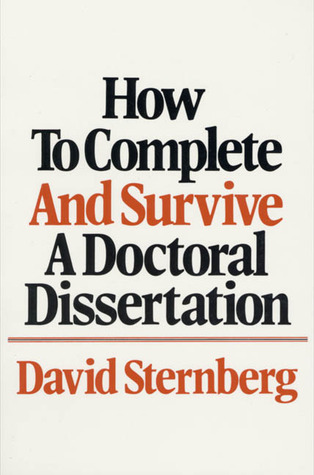What do you think?
Rate this book


240 pages, Paperback
First published June 15, 1981
As a piece of humour, this book works well. Some choice quotations:
Hard and life science doctorates require a "dissertation," but the form and strict faculty supervision of these projects are not like a full dissertation… Hard science and professional-degree candidates know that if they attend two to four years of classes along with their mates and carry out the last-year project, closely supervised by their advising professor, they will—excepting contingencies like banana-peel slippage—almost always receive their doctorates.
The Computer: To Use or Not to Use? The issue whether to use computer technology in the data-processing and/or analysis stage of a dissertation is usually a serious one only in social science dissertations…
Survey data, demographic data, large-scale, large-sample questionnaire data are all good candidates for computer processing. The larger that observational data, collected firsthand, looms, the less the importance or even legitimacy of the computer…
Many students, and faculty, are terrified of the computer. Indeed, computer folks are able to get a leg up on the rest of us by exploiting that fear; they possess some powerful, specialized, "scientific" skills to which we don't have a clue… There are also very serious questions about the validity or (limited) applicability of mathematical procedures in research about people, but most of us can only intuit objections to mathematical models of social behavior, since we don't have the math that the specialists keep urging upon us.
I have my doubts as to whether any of this was valid back in 1981 when the book was published, though it certainly isn't valid now. How embarrassing it must be for the author for this book to remain in print. No doubt it contains some useful information on the writing and research process, though it's in desperate need of an update.